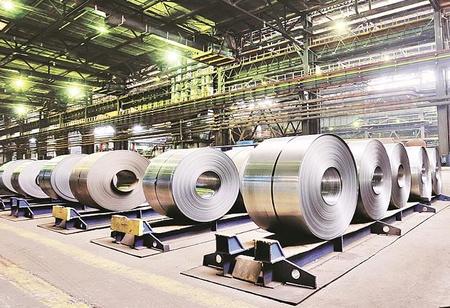After completing the attainment of Bhushan Power & Steel under the insolvency law, Sajjan Jindal-controlled JSW Steel has thrown its hat in the ring for Neelachal Ispat Nigam Ltd (NINL).
Sources informed that the firm has submitted an expression of interest (EOI) for NINL. The due date for EOI submission is March 29. A senior JSW Steel official refused to comment.
NINL is jointly owned by Central and state PSUs with MMTC, IPICOL, NMDC, OMC, as major shareholders. The government had bided EOI for disinvestment of 93.71 per cent stake in NINL to a strategic buyer, to be identified through a two-stage auction procedure.
A long steel products unit, NINL has a 1.1 million tonne capacity and produces pig iron and billets. JSW Steel apart, major steel companies like Tata Steel, AM/NS India and Vedanta-owned ESL Steel are also likely to participate in the disinvestment programme of NINL.
With the 2.5 million tonne BPSL purchase, JSW Steel enhanced its steelmaking capacity and
regained its lost crown of the largest steel player in the country. That’s a spot that JSW had held till 2018, but the auction of stressed steel resources under the Insolvency and Bankruptcy Code (IBC) upset the league table when Tata Steel acquired Bhushan Steel having a capacity of 5.6 million tonnes.
Having bagged BPSL, the strategy now is to improve its downstream capabilities and JSW is on the lookout for downstream and smaller steel firms; NINL fits into that strategy.
Also, NINL’s facility is located in the Kaliganagar Industrial Complex in Duburi, Odisha, and JSW just set foot in the state with BPSL, which has its main plant in Jharsuguda, Odisha.
Even though JSW had a small presence in Chhattisgarh through Monnet Ispat & Energy (jointly owned by AION); Monnet has been renamed JSW Ispat Special Products, the move marks a major entry into the East.
Mounting in the East, and especially Odisha, would make sense for JSW Steel, as its captive mines, won last year when the state government auctioned 19 mines, were in the state. JSW bagged four mines early on 2020 by agreeing to pay 95-110 per cent premium on the ore mined. The mines have reserves of over a billion tonnes.
Moreover, there are plans to establish a 13.2 million tonnes greenfield plant in Odisha, as well. From the East, JSW would be able to service the North, as well; from a freight point of view, serving the region from the West or South – the locations for JSW’s main plants – makes it expensive.
The greenfield project, nevertheless, is most likely to be boosted after the completion of brownfield projects. In the offing, is the five-million tonne expansion at Dolvi (Maharashtra), which is expected to be commissioned before June? That would take JSW’s capacity to 26.5 million tonnes.
